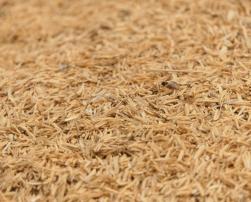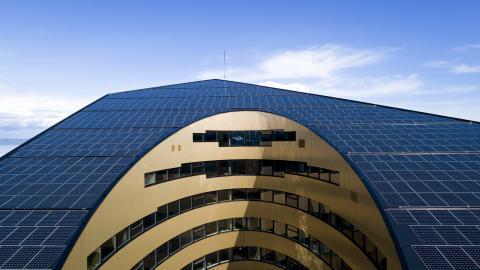Topic of the Month (May 2023)
Each month a relevant topic and several sub-topics are covered in detail. For the Topic of the Month, content following a common thread is developed by BUILD UP Editorial Board in collaboration with the Board of Ambassadors and other relevant experts in the field. This includes producing articles, case studies, webinars and more, all in line with the specific topic selected. Relevant events are also identified and highlighted.
Topics of the Month are announced at the end of the previous month in our website and newsletter. Please write us if you wish to know more about our upcoming topics of the month.

Embodied carbon significantly affects building-related emissions. This research assesses whether 'net-zero embodied carbon' is feasible for multi-storey office buildings in Australia.

The UNDP is using WASP's Crane 3D printer in Colombia to build sustainable facilities with local materials, enhancing development in remote areas.

The Life Cycle Global Warming Potential factsheet from the World Green Building Council provides guidance on EPBD measures to reduce buildings' total carbon emissions, including a timeline, checklist, and recommendations for effective national regulations.

The construction sector must leverage BIM and standardised carbon data collection to overcome challenges and collaboratively achieve net-zero targets for a sustainable built environment.

The construction industry is increasingly prioritising early material selection to enhance sustainability and reduce environmental impact, driven by digital tools and data transparency.

This study evaluates the operational carbon footprint of Adohi Hall, finding that cleaner energy sources and the campus's combined heat and power plant significantly reduce emissions by up to 21%.

The EPA is awarding $160 million in grants to support the development and verification of Environmental Product Declarations (EPDs) for various construction materials and combat greenwashing.

The CISBAT 2025 conference in Lausanne, Switzerland, invites abstracts on energy efficiency, renewable technologies, and circularity by 31 October 2024, for a hybrid event focusing on the transition to carbon neutrality in the built environment.

Rammed earth is a sustainable construction method often undermined by cement stabilisation, highlighting the need for industry standards and broader acceptance.

The construction and operation of buildings contribute significantly to global carbon emissions, requiring urgent adoption of efficiency measures, renewable energy, and sustainable materials to achieve net-zero emissions by 2050.
